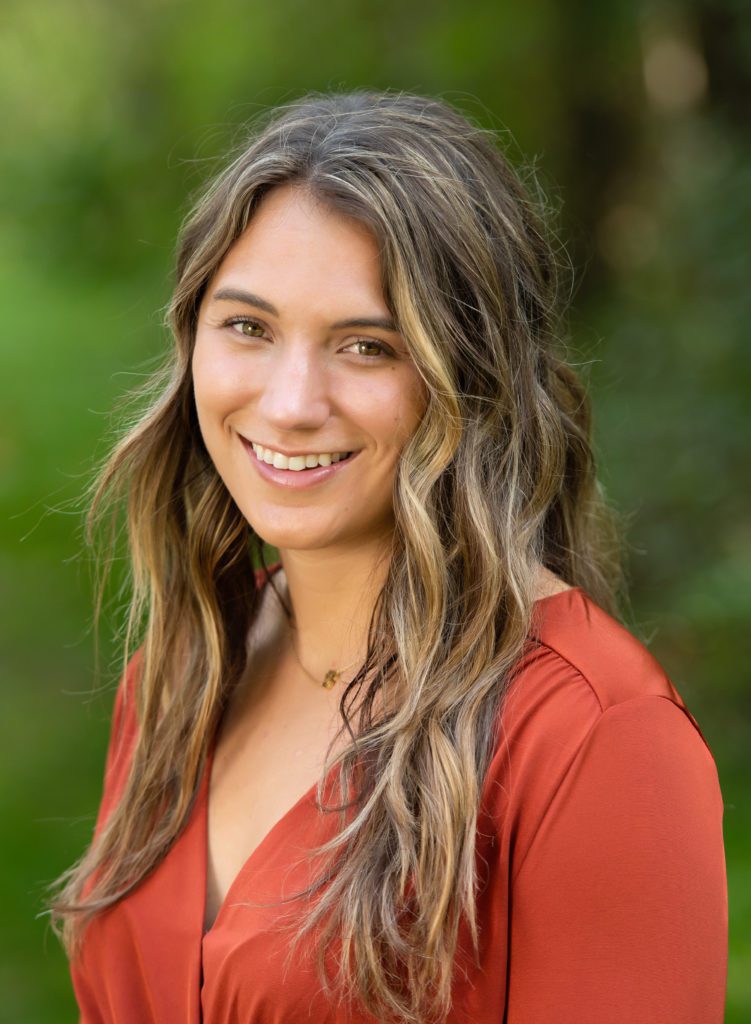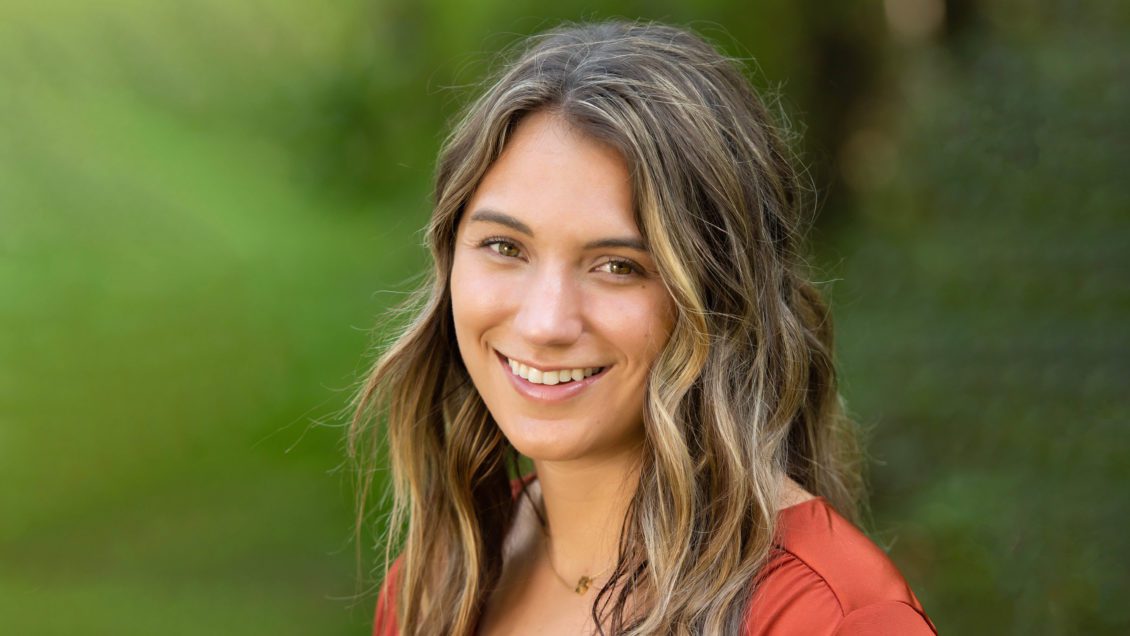Caitlin Koob seemed destined for the field of occupational therapy, but her interest in the research side of the field only revealed itself during her experience as a graduate student. A faculty mentor during her master’s program and a short-term study opportunity in Seattle, Washington, ignited her interest in research and made it a priority when she later searched for Ph.D. programs.
The Applied Health Research and Evaluation Ph.D. Program offered by the Clemson University Department of Public Health Sciences was a natural choice for Koob, and she was drawn to how enthusiastic the faculty were about their doctoral students’ research endeavors.
With help from Sarah Griffin, professor in the Department of Public Health Sciences and Koob’s faculty adviser, she applied and was selected for the South Carolina Leadership Education in Neurodevelopmental and Related Disabilities (SC LEND) program offered by the Medical University of South Carolina and Prisma Health-Upstate.
At first it was an appreciation for what the therapist was doing for my cousin and our family, but I quickly decided that I wanted to do the same thing for other families and people with disabilities to try to help them become as independent as possible.
Caitlin Koob, on realizing why occupational therapy was her calling
Koob plans to work with marginalized, underserved populations of children, so SC LEND is giving an already dedicated public health professional even more tools to improve the health of young people with disabilities.
“I know it can be challenging for a professional working with this population, but that is only because the need is so great,” Koob said. “If I can do my part to address the disability and promote resiliency, there is at least some hope because those are the kids who don’t often get the care they need.”
Koob’s path to become an occupational therapist was set years before she started her undergraduate and later master’s degree in occupational therapy at Western Michigan University. Her singular focus on working with children with neurodevelopmental disabilities began when she was only in middle school.
At that time, a much younger cousin was diagnosed with Rett Syndrome, a rare neurological disorder that occurs almost exclusively in girls that can lead to severe impairments to speech, mobility and even breathing. Koob and her family showed their support by accompanying her cousin to appointments with their occupational therapist, and the work she witnessed immediately appealed to her as a possible career path.

“Of course, at first it was an appreciation for what the therapist was doing for my cousin and our family,” Koob said, “but I quickly decided that I wanted to do the same thing for other families and people with disabilities to try to help them become as independent as possible.”
Griffin said she has been continually impressed with Koob’s willingness as a doctoral student to jump into research projects and learn new data collection, management and analysis skills. She said Koob is also comfortable conducting research with participants from diverse backgrounds, which will serve her well as an occupational therapist and researcher working with underserved populations.
Koob is currently a graduate assistant on the Center for Disease Control’s High Obesity Program, which Griffin has led in South Carolina since 2018. Koob is responsible for all social media content related to the project, she has led qualitative research efforts in three counties and she has assisted with survey data collection and management for a nine-county survey project.
“Her background and research interests are a perfect intersection for SC LEND,” Griffin said. “The program will accelerate her understanding of the relationship between adverse childhood events, neurodevelopmental concerns and chronic disease from a multidisciplinary perspective, making her even more well equipped to work with the population she cares so much about.”
SC LEND provides flexible online courses covering clinical and leadership topics related to neurodevelopmental disabilities and Koob’s doctoral program coursework. Clinical, leadership and research training are also included as well as opportunities to network with current health care professionals.
Koob is a long-term trainee in the program, meaning that she will complete 300-plus hours of coursework as well as clinical and leadership training experiences over the course of a one-year traineeship. She is also working with Anne Marie Kinsman, a developmental pediatrician at Prisma Health, to create education modules for the community and other professionals who have not had disability training but need more education on working with people with disabilities.
“Not everyone has the opportunity to do something like LEND, so these modules will be like a snapshot of the education for anyone who wants to use these lessons practically,” Koob said. “Part of it is learning how to advocate for this population; I’m proud of what I have learned to do through my studies, so it would be great to share those lessons learned with others.”
The Department of Public Health Sciences is part of the University’s College of Behavioral, Social and Health Sciences (CBSHS). Established in July 2016, CBSHS is a 21st-century, land-grant college that combines work in seven disciplines – Communication; Nursing; Parks, Recreation and Tourism Management; Political Science; Psychology; Public Health Sciences; Sociology, Anthropology and Criminal Justice – to further its mission in “building people and communities” in South Carolina and beyond.
Get in touch and we will connect you with the author or another expert.
Or email us at news@clemson.edu

